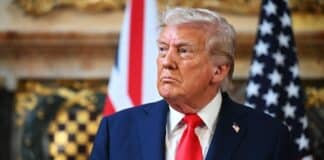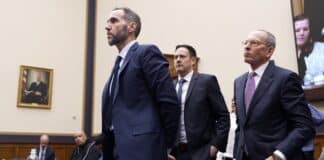Hundreds of the most prominent TikTok video artists united in 2020 with the singular objective of electing Joe Biden. To aid Biden in defeating Donald Trump, they conducted online events, uploaded videos, and spent hours teaching their followers.
After four years, the group once known as TikTok for Biden has changed its name to Gen-Z for Change, and it hasn’t supported Biden’s reelection thus far.
The coalition’s creator, Aidan Kohn-Murphy, 20, claimed that Biden was out of step with young people on several important topics and described “the frustrations of young progressive leaders as a barometer of widespread dissatisfaction among Gen Z voters.”
Gen Z content creators are furious and betrayed with Biden on TikTok, Instagram, YouTube, and Twitch. They feel betrayed by his stances on a number of issues, such as the war in Gaza, the climate crisis, and the president’s decision to back a possible TikTok ban. The White House’s shifting approach of wooing ally influencers and cutting off those who have been critical of the administration has deepened the division.
After Biden became president in 2021, the White House made an effort to strengthen ties with Gen Z content producers by educating them on important subjects and collaborating with them to support the release of the coronavirus vaccine. Press secretary Jen Psaki and Matt Miller, special adviser for communications at the White House National Security Council, warned influencers during one such briefing on the crisis in Ukraine in 2022 that Biden considered them the “new media” and would work to keep them informed.
However, according to influencers, the White House and the Biden campaign appear to have changed their approach to using influencers recently.
“I’ve seen that there are a lot more creator-only events, but the artists who are getting invited are the ones who are really pro-Biden, either by sharing happy photos of themselves with the President or by simply reiterating talking points. Not the creators who have been critical,” asserted Washington-based history content producer and education advocate Kahlil Greene, who claimed he hasn’t received an invitation to the White House since criticizing the administration over the conflict in Gaza and the TikTok ban.
Annie Wu Henry, a digital strategist and political influencer with experience working on Democratic campaigns, concurred. She claimed that the White House used to treat creators like independent media, but that they now appeared to be favoring some.
“They’re trying to say that they’re handling influencers like the press,” said Biden’s staff. The problem is that Fox News is a must in the press briefing room. All of the journalists must be permitted entry,” Henry remarked. “Those who disagree with influencers are not welcomed, and those who offer even a small amount of resistance are not allowed in.”
For Biden, the results of his selective choosing have been severe: According to social media analytics company CredoIQ, in the first four months of this year, about 25% of the most prominent left-leaning content creators on TikTok have shared anti-Biden content, with those postings accumulating over 100 million views in total.
Young, non-White liberals who “shared ideology that the U.S. Government, and specifically Joe Biden, want to stop the flow of free speech and information” are largely responsible for the majority of the anti-Biden content, according to CredoIQ.
“This perceived attack on free speech is facilitating the spread of anti-Biden sentiment from a smaller group of young progressives who are pro-Palestine and incensed about Biden’s backing Israel in its bloody war in Gaza to a potentially market-moving bloc of disinterested young voters who are angry about the TikTok ban.”





